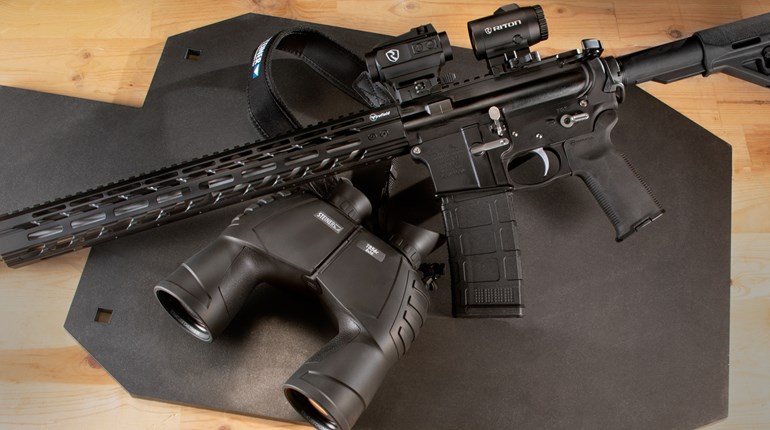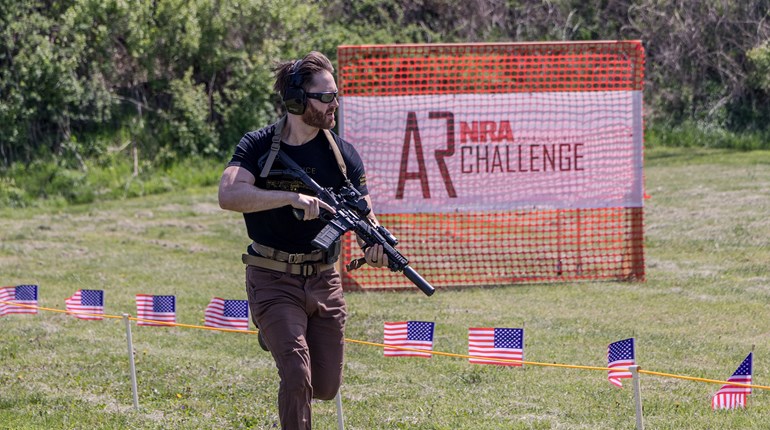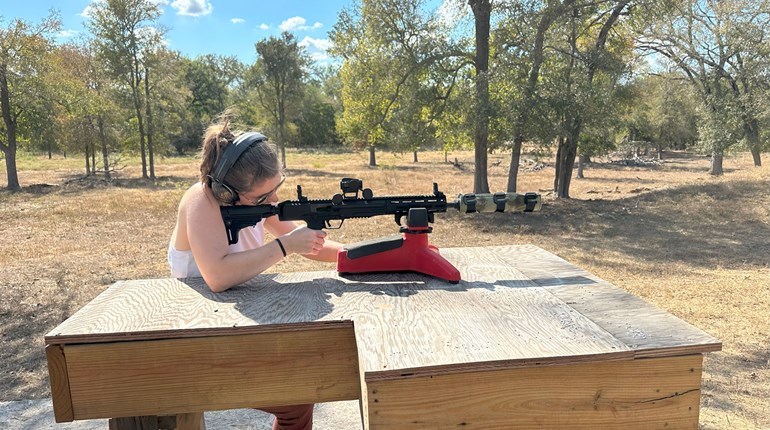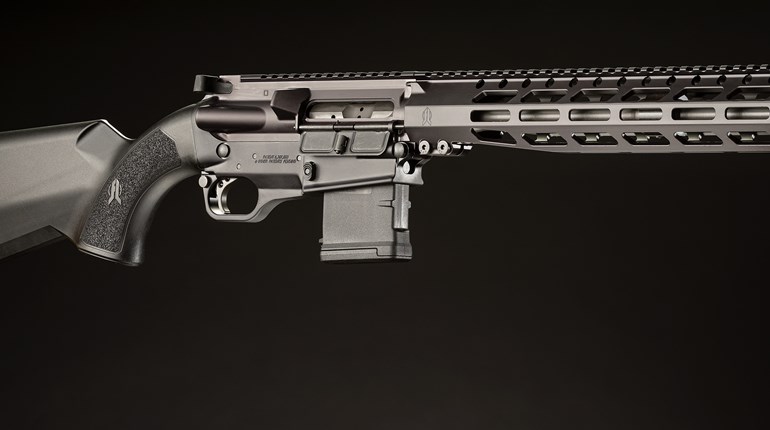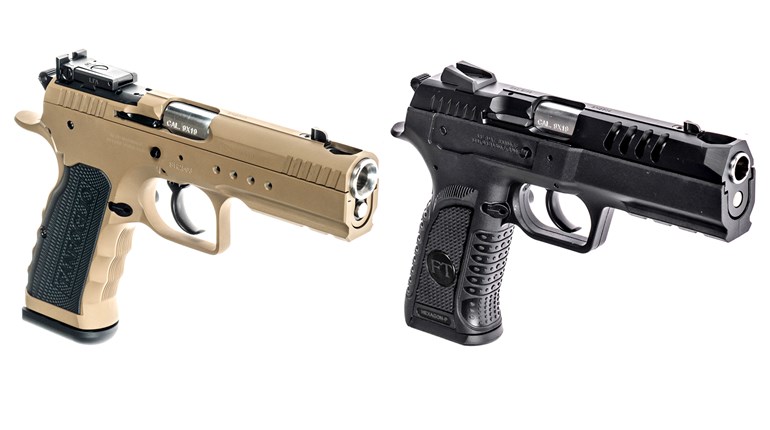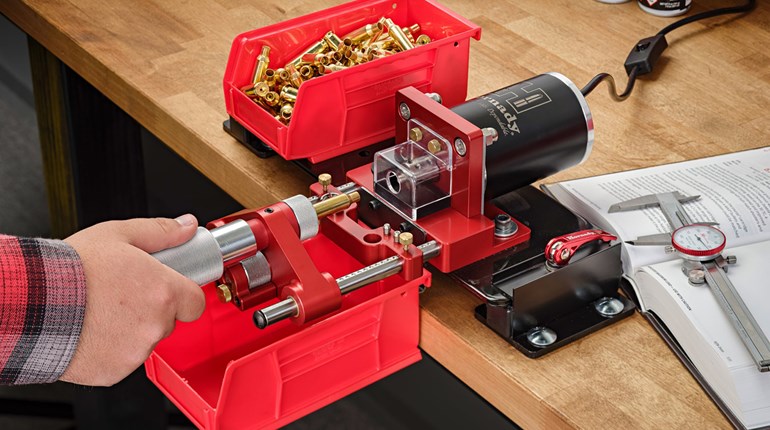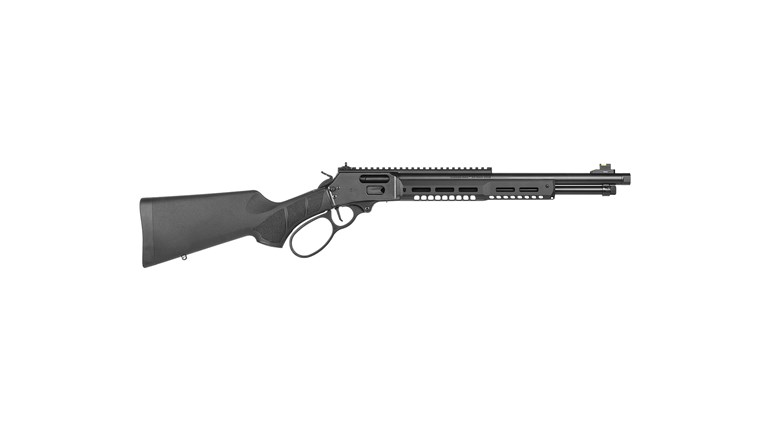
Every so often, a shooting trend grates on me to the point where I have to sound off. My current gripe is the use of rifle magazines as vertical grips. Sure, long mags make convenient hand-holds when you have to keep a rifle up for a long event or are wearing so much “lightweight” gear that your arms are 3 inches shorter than normal. Further temptation comes from aftermarket products like textured and contoured magazines. Unfortunately, not all trends are good, and this one has some definite problems. Holding an external magazine with your support hand may be what you were taught, it may be what you have seen other shooters do, it may look cool or it may simply be comfortable, but it is a bad idea all the same.
Full disclosure here: There was a time when I often held my issued carbine this way during Close Quarters Battle (CQB) work. I simply found it more comfortable to hold my CAR-15 by the mag when my arm fatigued during hours-long clearing operations. But, I began to notice a pattern of malfunctions during live-fire CQB training. We were using unreliable frangible ammunition much of the time, so I credited bad ammo with the failures-to-feed. Then I saw the same problem while shooting M855 “green tip”—as well as specialty munitions—but only while I was in shoot-and-move mode. I could not replicate the problem with every magazine, nor while kneeling or prone on the range. A visit to the armorers and a bit of question-and-answer revealed I was the problem. Of course, I was way too cool for that to be possible, but an astute gunsmith patiently explained that holding my magazines with the support hand was exacerbating the slop built into them and the rifle’s mag well. The excess play is what allows mass-produced guns and magazines to work well together under normal circumstances. Pulling back on the magazine to help steady a rifle and control recoil, however, causes the mag’s front edge to tilt downward. This lowers cartridges to the point where either case mouths or bullet tips can hang up during feeding. The explanation did not convince me, but a quick trip to the range with some problem magazines did. The armorers were 100-percent spot-on. My AR worked fine when I did not touch the magazines, but malfunctioned when I used them to pull the gun in tight to my shoulder.
If your mags are tighter than bark on a tree and you have had no such malfunctions, perhaps time and accuracy are worthy considerations. This facet of hand placement is most evident in speed-driven, competitive shooting sports like 3-gun. The farther out your support arm is placed on a rifle’s fore-end, the better your recoil management and efficiency while driving the gun laterally from one target to another. Greater control reduces the tendency to “overdrive” or move past your intended target. The trade-off here is that holding the weight of a rifle with a straight support arm is harder over the long term. But for short “sprints,” it is smoother than shooting with your support hand choked up on the magazine.
OK, so mag gripping is not causing any malfunctions and competition split times are somewhere below Miley Cyrus’ latest antics on your list of worries. How do you feel about keeping your fingers? Two of my close friends have had rifles blow apart in their hands. In each case, the gun’s magazine was blown to pieces and was followed out of the mag well by brass, steel, aluminum, hot gasses and burning powder. One blowout was caused by a faulty receiver design and the other by a plugged suppressor. The higher the pressure created by cartridge ignition, the more it stresses whatever contains it. When the various materials that make up the cartridge and a rifle’s action hit their failure points under pressure, they become fragments. A magazine well makes a very nice directional chute through which much of the force and gun parts leave a blown rifle. Even when handguards come apart or barrels rupture, mag wells still tend to act like miniature Claymore mines.
Other blow-up causes include faulty ammunition and out-of-battery bolt firing. In each case, holding the magazine is likely to cost you some skin at best and fingers or a hand at worst. I have seen pieces of magazine, bolt-carrier group and cartridge buried in the ground below a receiver that has let go—all directly in line with the magwell. Thankfully, modern manufacturing methods make rifle blow-ups rare, but then there is the human factor to consider.
I have most of the pieces to a 5.56 NATO AR that one of my customers destroyed by chambering and firing a .300 BLK cartridge in it. The bullet swaged itself down to .224 caliber and travelled about 4 inches before the upper receiver gave up and blew out. The upper remained attached to the lower with the bolt seized and partially unlocked. The only place for the separating brass and steel to go—including the ½ x 3-inch bottom of the bolt carrier—was down the mag well. The magazine was also blown open, exposing a jagged cut along the front edge. While most of us are smart enough to load the right cartridges in our guns, consider that in this case the shooter was handed the rifle by its owner for a test drive. The only thing the shooter did wrong was fail to recognize an idiot. Fortunately the carbine was held properly and no one was hurt. The gun’s owner was lucky to get away with nothing more than wounded pride and a hit to his wallet.












